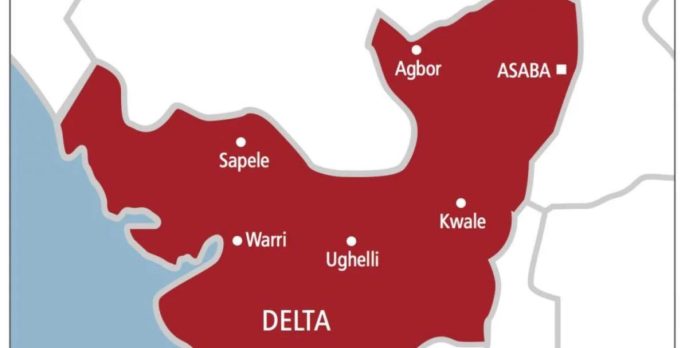Fear and frustration have gripped over 20 communities in the Delta North Senatorial District, where residents say armed herdsmen and kidnappers have taken over their forests, highways, and farmlands, unleashing a wave of terror that has claimed more than 50 lives and led to countless abductions over the past six months.
The affected communities—Ubulu-Uku, Ogwashi-Uku, Ibusa, Issele-Uku, Azagba-Ogwashi, Ubulu-Unor, and others—are now calling on Governor Sheriff Oborevwori to launch an all-out security offensive, including the deployment of aerial surveillance, military raids, and the enforcement of anti-open grazing laws.
“We are living in fear every day,” said Mr. Andrew Okafor, a retired security officer from Otulu. “Armed Fulani herdsmen kidnap people from farms and roads. They hide in our forests and strike at will.”
Local vigilantes, residents say, are overwhelmed and poorly equipped to counter the heavily armed criminals, who have been blamed for brazen attacks, including roadside abductions, sexual assaults, and murders. Farming has become nearly impossible, and travel on major roads, including the Benin-Asaba highway, is now fraught with danger.
John Ndukwe, a businessman from Azagba-Ogwashi, revealed the devastating personal toll: “My wife was raped on our farm by suspected herdsmen. They act with impunity because no one is stopping them.”
Residents report bizarre ransom demands that go beyond cash. “These kidnappers now ask for jollof rice, turkey meat, and energy drinks,” said Mrs. Joan Isioma, a teacher from Anifekide. “They play herdsmen by day and become gunmen by night. We are tired of living like this.”
In one of the most gruesome incidents, Mr. Godwin Anuka was killed in front of his wife and children during a farm abduction. His killers later kidnapped a doctor and his driver on the Asaba-Issele-Uku expressway, demanding N15 million—and cooked food—as ransom.
On March 23, a student from Delta State Polytechnic, Ogwashi-Uku, was kidnapped. That same night, another man was abducted in Ubulu-Uku. Days later, a pastor was shot during a vigil and five worshippers were taken. Real estate agent Esther Ojoh was murdered in late March after showing a property near Admiral University, Ibusa.
In response, the Commissioner of Police, Delta State, CP Olufemi Abaniwonda, launched a sting operation. According to Police Public Relations Officer SP Edafe Bright, four suspected kidnappers—including notorious gang leader Abubakar Usman a.k.a. “Shehu”—were killed in a gun battle. Three AK-47 rifles and 90 rounds of ammunition were recovered.
Usman reportedly confessed to leading multiple kidnappings across the region, including the killing of Mr. Anuka and the abduction of Ojoh.
While the government says it is working behind the scenes to tackle the crisis, many community members feel not enough is being done.
Governor Oborevwori recently re-launched the state’s security initiative under the new name Operation Delta Sweep, donating 31 new operational vehicles to security agencies, bringing the fleet to 66.
“This rebranding underscores our renewed focus on eliminating crime,” the governor said while handing over the vehicles to the Inspector-General of Police. “Under our MORE Agenda, we are committed to peace and security.”
Still, local residents insist that security efforts must go beyond patrols and press briefings.
“The laws are useless if not enforced,” said Mrs. Isioma. “Until the forests are cleared, drones deployed, and forest rangers armed and trained, we will remain vulnerable.”
Mr. Celestine Nmakwe, a commercial driver, captured the mood of many: “They use cows as cover to monitor the roads during the day and return with rifles at night. We are not safe anywhere. The time to act is now.”
As the crisis deepens, pressure mounts on the Delta State government to match rhetoric with results and bring lasting security to the embattled Delta North region.

